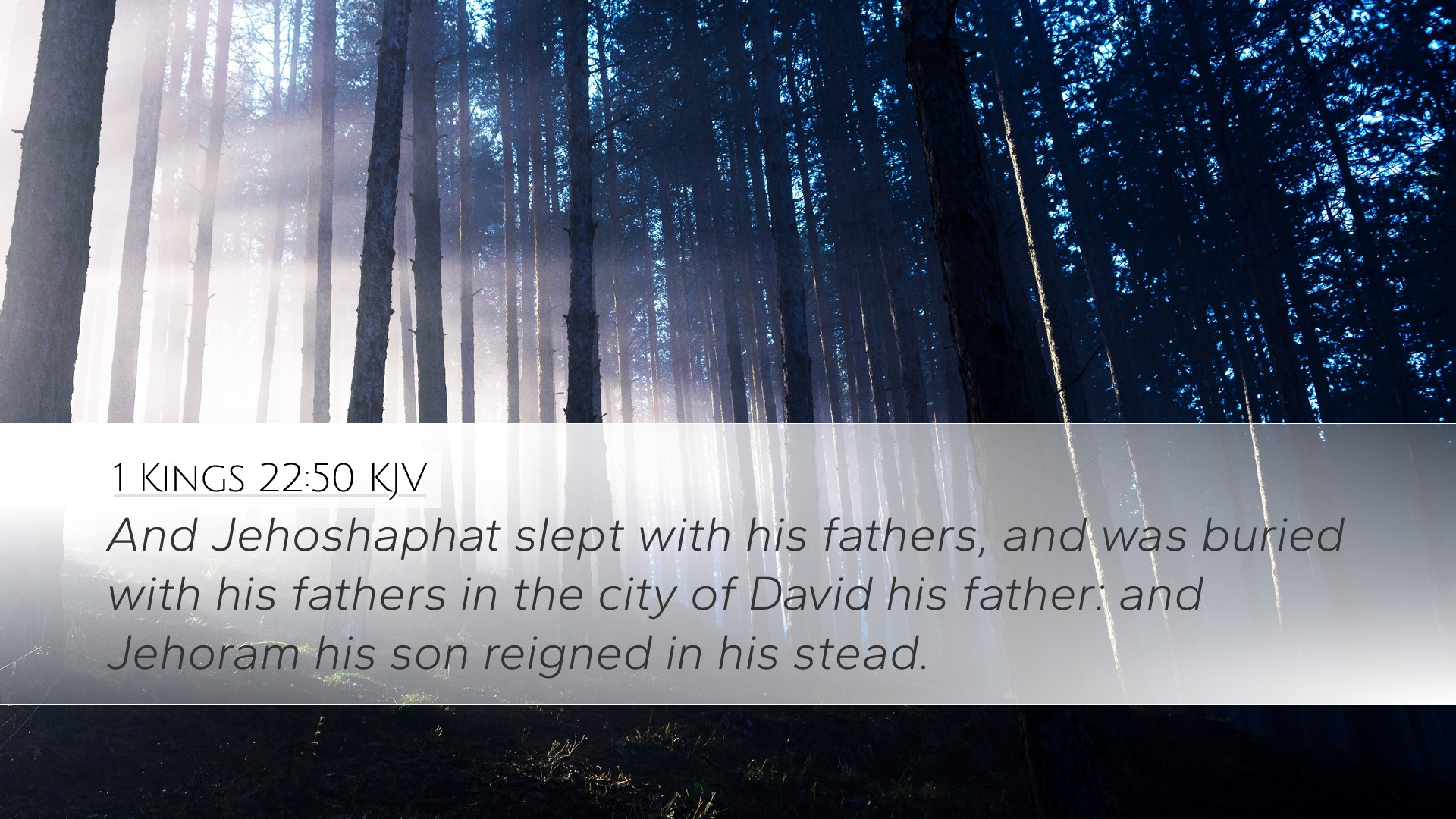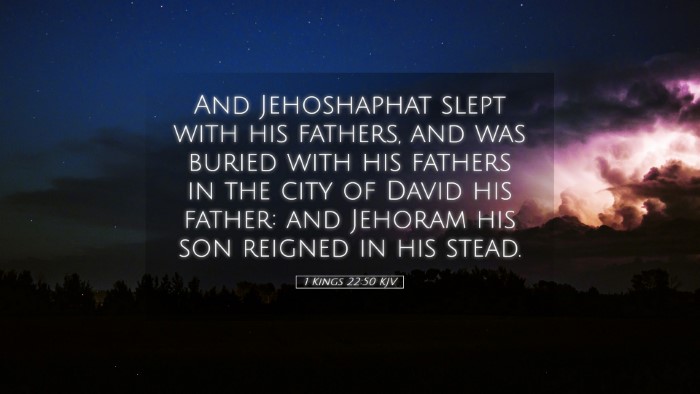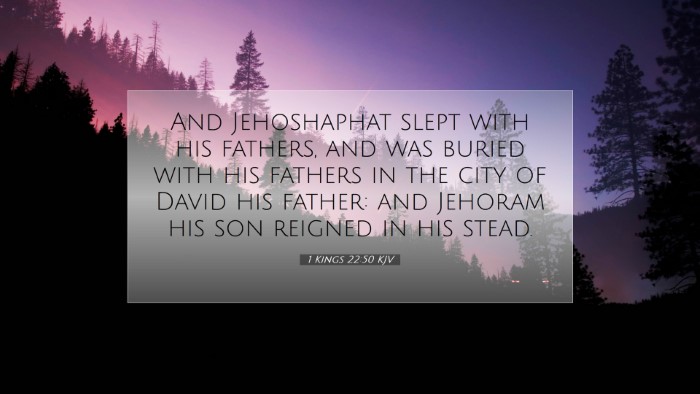Commentary on 1 Kings 22:50
Verse Reference: 1 Kings 22:50 - "And Jehoshaphat slept with his fathers, and was buried with his fathers in the city of David. And Jehoram his son reigned in his stead."
Introduction
The passage at hand serves as a brief conclusion to the life and reign of King Jehoshaphat of Judah. It reflects on his death and the succession of his son, Jehoram. Public domain commentaries shed light on the theological implications of Jehoshaphat's reign, his relationships with Israel, and the spiritual legacy he left behind.
The Death of Jehoshaphat
Jehoshaphat's death is narrated with significant reverence. Matthew Henry notes that it emphasizes the mortality of even the greatest men and the transient nature of earthly rule. The phrase "slept with his fathers" symbolizes peace in death, indicating that he was gathered to his ancestors with honor.
- Legacy: His legacy is worth noting, as he led Judah in spiritual reforms and military successes.
- Righteous Leadership: Clarke remarks on his overall righteousness and faithfulness to God, which contrasts sharply with his successors.
- Moral Lessons: This conclusion serves as a reminder for leaders of the importance of a God-centered life.
The Burial
Jehoshaphat is said to be "buried with his fathers in the city of David." Barnes elaborates on this burial as not merely a physical act but a symbolic return to ancestral glory. To be buried in the city of David signifies recognition of his contributions to the nation and his rightful place among the kings of Israel.
- Significance of Burial: Reflects the idea of King's continuity and the shared heritage.
- City of David: The city remains a central theme in the history of the Israelites, marking a continuity of leadership.
The Succession of Jehoram
The transition to Jehoram reigns brings with it significant concerns, as his character stands in stark contrast to that of his father. Clarke notes the implications surrounding this transition. Jehoram's ascension leads to a series of spirals in apostasy and moral failure which haunt the kingdom.
- Character Comparison: Unlike Jehoshaphat, Jehoram did not display the same piety; instead, he adopted practices that were more aligned with the apostate Israel.
- Consequences of Apostasy: This divergence from his father’s faith has dire consequences for the nation of Judah, foreshadowing future struggles.
Theological Implications
This closing verse serves to underscore the theological truth of divine sovereignty and the importance of righteous leadership. The transfer of power highlights God's overarching plan and the impact of individual leaders’ actions on the nation as a whole.
- God’s Sovereignty: Barnes points out that God works through the rise and fall of leaders to fulfill His plan for Israel.
- Impact of Leadership: This verse acts as a cautionary tale for those in power regarding the consequences of their spiritual fidelity or lack thereof.
Conclusion
In conclusion, 1 Kings 22:50 serves as a poignant reminder to reflect on our leadership and spiritual heritage. As pastors, students, theologians, and scholars delve into this text, it invites examination of how the lives of leaders in Scripture inform and challenge contemporary faith and practice.
Considerations about the legacy of Jehoshaphat prompt readers to ponder how their own lives are remembered and the implications that follows from their actions. This study not only enriches our understanding of Israel's history but also encourages a deeper commitment to living a life that honors God.


